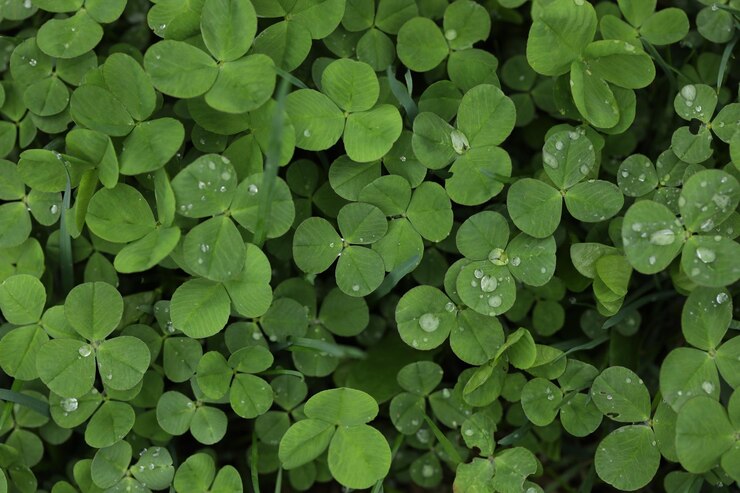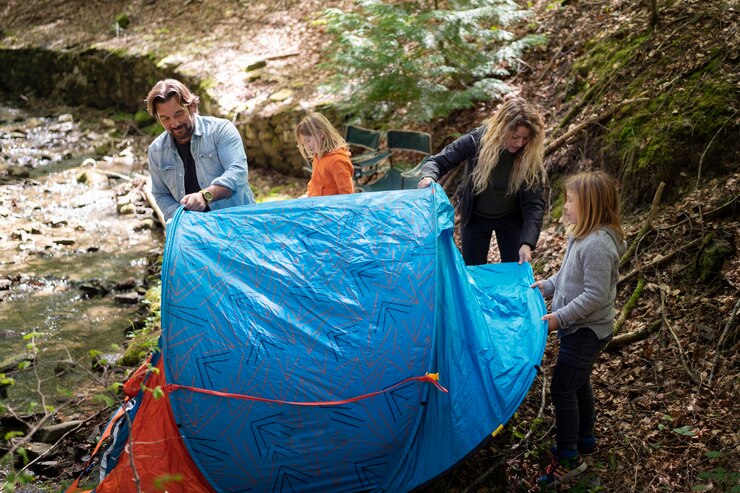In recent years, there has been a growing movement towards sustainable and eco-friendly landscaping practices. One of the standout trends in this movement is the clover lawn. Once considered a weed by many homeowners, clover is now being embraced for its numerous benefits. This article explores the advantages of clover lawns, their maintenance requirements, and why they might be the perfect alternative for your yard.
What is a Clover Lawn?
Clover lawns are primarily composed of clover, a low-growing, perennial plant that belongs to the legume family. The most common variety used in lawns is white clover (Trifolium repens), known for its small, white flowers and vibrant green leaves. Unlike traditional grass lawns, clover lawns offer a unique blend of beauty and practicality.
The Environmental Benefits of Clover Lawns
Natural Nitrogen Fixation
One of the most significant advantages of Clover Lawns is its ability to fix nitrogen from the air and deposit it into the soil. This process reduces the need for chemical fertilizers, which can leach into waterways and cause environmental damage. Clover’s nitrogen-fixing ability not only benefits the Clover Lawns itself but also any grasses or other plants growing alongside it.
Improved Soil Health
Clover has deep roots that help aerate the soil, improving its structure and increasing its ability to retain water. This can lead to healthier plants and reduced erosion, especially on sloped properties. The deep root system also makes clover more drought-resistant than many grass species, reducing the need for frequent watering.
Support for Pollinators
Clover flowers are a favorite food source for bees, butterflies, and other pollinators. By planting a clover lawn, you can provide essential resources for these creatures, which are vital to maintaining biodiversity. This is particularly important given the decline in pollinator populations worldwide.
Reduced Chemical Use
Traditional lawns often require a significant amount of herbicides and pesticides to maintain their appearance. Clover Lawns, on the other hand, is naturally resistant to many common lawn pests and diseases, reducing the need for chemical interventions. This creates a safer environment for children, pets, and wildlife.
Economic Benefits of Clover Lawns
Lower Maintenance Costs
Clover lawns are low-maintenance compared to traditional grass lawns. They require less mowing, watering, and fertilization, which can lead to significant savings in both time and money. For those looking to reduce their lawn care budget, clover is an excellent option.
Drought Tolerance
Clover is more drought-tolerant than most grass species. During periods of low rainfall, clover remains green and lush, while grass lawns often turn brown and require supplemental watering. This drought tolerance can reduce your water bills and make your lawn more resilient to changing climate conditions.
Long-Term Savings
Over time, the reduced need for fertilizers, water, and pesticides can lead to substantial savings. Additionally, the durability and low maintenance requirements of clover mean that it can last for many years with minimal care, making it a cost-effective choice in the long run.
Aesthetic Appeal of Clover Lawns
Year-Round Greenery
Clover lawns stay green longer than traditional grass lawns, particularly in cooler months. Even during periods of drought, clover can maintain its lush, vibrant appearance. This year-round greenery can enhance the overall aesthetic appeal of your property.
Soft Texture
Clover has a soft, cushiony texture that feels pleasant underfoot. This makes it an ideal choice for areas where children play or where people frequently walk barefoot. The soft texture also reduces the risk of injuries from falls, as the clover provides a gentle landing surface.
Attractive Flowers
In addition to its lush green leaves, clover produces small, delicate flowers that add a touch of natural beauty to your lawn. The white or pink blooms create a charming, cottage-garden feel that can enhance the visual appeal of your outdoor space.
Considerations Before Planting a Clover Lawn
Potential Drawbacks
While clover lawns offer many benefits, there are a few potential drawbacks to consider. For example, clover does not withstand heavy foot traffic as well as some grasses, so it may not be suitable for high-use areas. Additionally, clover can attract bees, which may be a concern for those with allergies or small children.
Mixing Clover with Grass
For those who are not ready to commit to a full clover lawn, mixing clover with traditional grass can be a great compromise. The clover will improve the soil health and provide nitrogen, while the grass can help withstand foot traffic and create a more traditional lawn appearance.
Establishment and Growth
Clover can be established from seed, and it typically grows quickly once planted. However, it may take some time to fully establish a clover lawn, particularly if you are starting from seed. During the establishment phase, it’s important to keep the soil moist and free from competing weeds.
How to Maintain a Clover Lawn
Watering Requirements
One of the most appealing aspects of clover lawns is their low watering requirements. Once established, clover needs minimal watering, making it an ideal choice for areas prone to drought or water restrictions. During extended dry periods, occasional watering may be necessary to keep the clover looking its best.
Mowing Guidelines
Clover lawns do not need to be mowed as frequently as grass lawns. In fact, many people choose to mow their clover lawns only a few times a year, allowing the flowers to bloom and attract pollinators. When you do mow, it’s best to keep the mower blades high to avoid cutting the clover too short.
Fertilization and Soil Care
Because clover fixes its own nitrogen, it rarely needs additional fertilization. However, if your soil is particularly poor, you may want to add a light layer of compost or organic fertilizer to help the clover establish itself. Over time, the clover will improve the soil quality, making fertilization unnecessary.
Conclusion:
Clover lawns represent a shift towards more sustainable and eco-friendly landscaping practices. With their numerous environmental, economic, and aesthetic benefits, clover lawns are an excellent alternative to traditional grass lawns. Whether you’re looking to reduce your lawn care costs, support pollinators, or simply enjoy a lush, green lawn with minimal effort, clover may be the perfect choice for you.
As more homeowners and landscapers recognize the benefits of clover, it’s likely that we will see a growing trend towards clover lawns in the future. By embracing this sustainable option, you can create a beautiful, low-maintenance outdoor space that benefits both you and the environment





